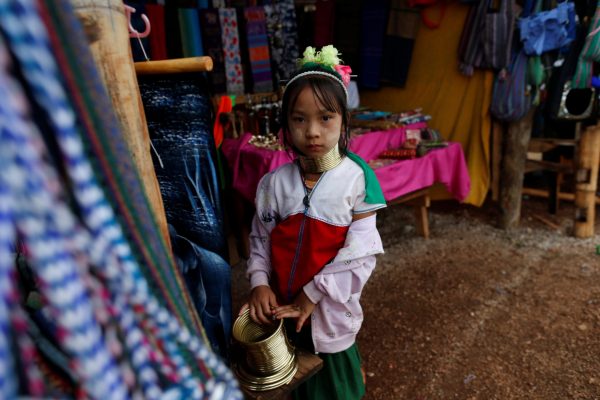Most people in Myanmar did not trust these figures. Some suspected that there were two economic worlds in Myanmar: the real world where people lived, and the statistical world that existed in official reports and documents. All that is needed to resolve this apparent paradox is to go to any market and observe the daily ordeal that buyers and sellers are facing to get the bare necessities of life for their families.
Briefly put, Myanmar has a sick economy and curing a sick economy requires consulting a doctor, getting a diagnosis and taking prescribed medicines.
So what should Myanmar’s medicine be?
A healtghy Myanmar would be a modern developed nation that meets the aspirations of its people for a better life. It would have substantial interaction and cooperation with the international community, which would not only help Myanmar to become a developed country but one that could be counted upon to meet the regional and global problems of the 21st century.
To get there, Myanmar needs take advantage of the knowledge, technology, expertise and resources that are available in the rest of the world. It also needs to cooperate closely with neighbouring countries in seeking solutions to common problems.
There are key players whose active involvement and support will be necessary to ensure a successful cure. The Tatmadaw (Myanmar’s armed forces) will need to give their cooperation and support, and Myanmar’s political parties should be encouraged to come forward with well thought-out agendas and plans to address the major issues facing the nation. Additionally, a substantive contribution towards an effective economic treatment must come from the country’s nationalities, who should be assured that diversity will be looked upon as an asset for the country. They should be guaranteed not only acceptance as equal partners in building a new society but also given special consideration where, due to geographic and other disadvantages, they may not be able to share equitably in the fruits of progress.
This prescription is nothing new. The country has grappled with the problem of inclusive economic growth since independence. In 2017, there are new factors at play — namely that the present government is popularly elected.
The good intentions and hard work put in by the government are not in doubt. Its numerous achievements as reported in the national newspapers on the public record. But what has been delivered over the past two years has fallen short of expectations.
Business people complain that they are not sure if the government is giving the economy the attention it deserves and that they have difficulty figuring out the government’s economic policies and its growth strategy. They are waiting for the government’s clarification on these questions. While they wait the economy remains in pause mode.
The government’s biggest asset in the task of kick-starting the economy may be Aung San Suu Kyi, who remains much admired by the majority of Myanmar’s people. Through key reforms and actions, she can lay the groundwork for restoring growth and vitality to the country’s economy without distracting from the government’s other important preoccupations.
First, Naypyidaw must issue a clear and unequivocal announcement that the economy will receive the highest priority alongside peace building. A thriving economy is essential for sustaining peace and stability as well as for the efficient and voluntary return, resettlement and rehabilitation of people who went abroad.
Second, the government must draft an economic strategy that all key stakeholders can support. Health, education and environmental issues will need to be taken up. In addition, safety nets will need to be in place to take care of vulnerable groups who would otherwise be left behind in a private sector-led, market-oriented approach to developing the economy.
The national economic strategy must also acknowledge Myanmar’s growing trade and economic links with its neighbours. Myanmar will need to take advantage of the opportunities offered by the information revolution and globalisation, as well as guard against their adverse consequences.
Third, State Counsellor Aung San Suu Kyi should have more frequent and substantive exchange of views with members of her party’s economic committee, her economic advisers and key officials at union as well as state and division levels who are engaged in planning, finance, trade and monetary affairs. These officials require greater independence in performing their duties and delegated authority to make decisions in their fields of competence.
Myanmar’s elected government offers a good opportunity to move the economy forward. At its fingertips are many people with proven abilities in business, finance and governance. The State Counsellor should engage with these experts and give consideration to their recommendations in order to launch a thought-out plan of action to restore growth and vitality to the economy.
U Myint is an economic advisor to the Union of Myanmar Federation of Chambers of Commerce and Industry (UMFCCI). He was formerly the chief economic adviser to the president of Myanmar. This article is a digest of his keynote address to the 2017 UMFCCI Convention in Yangon, December 2017.

